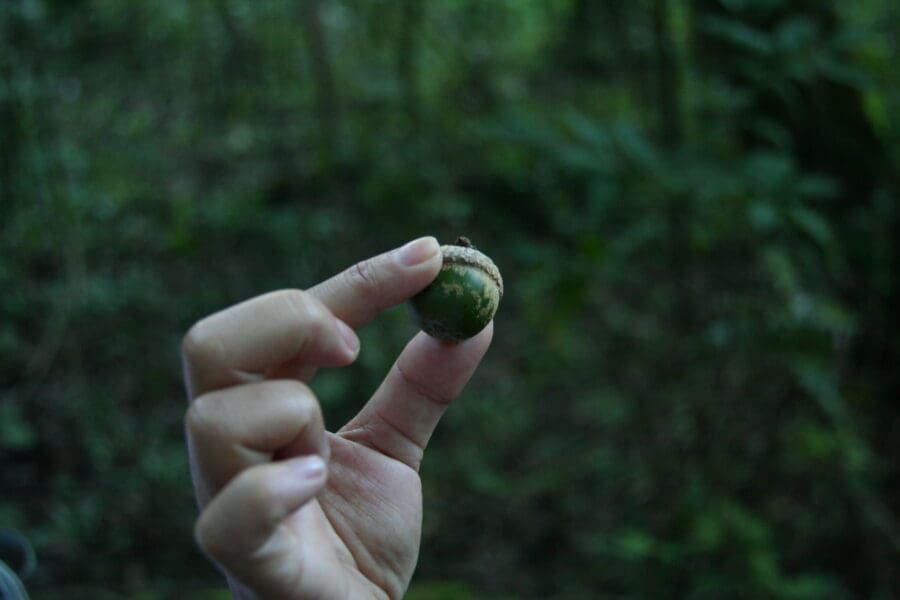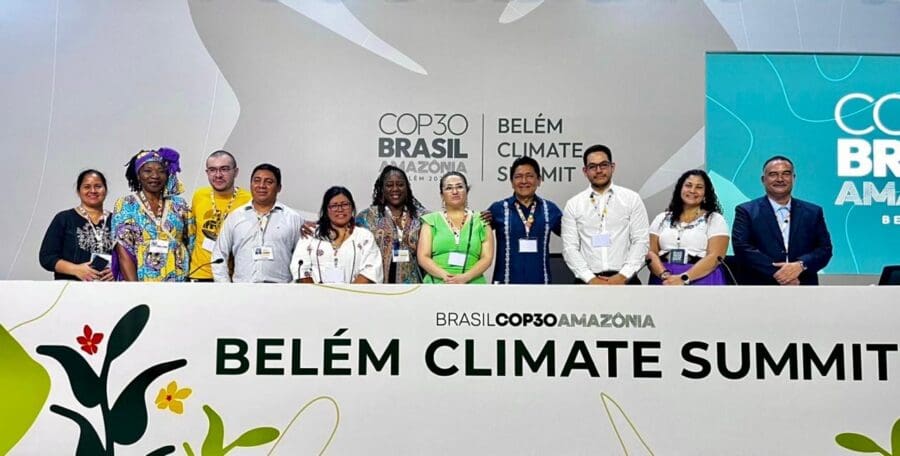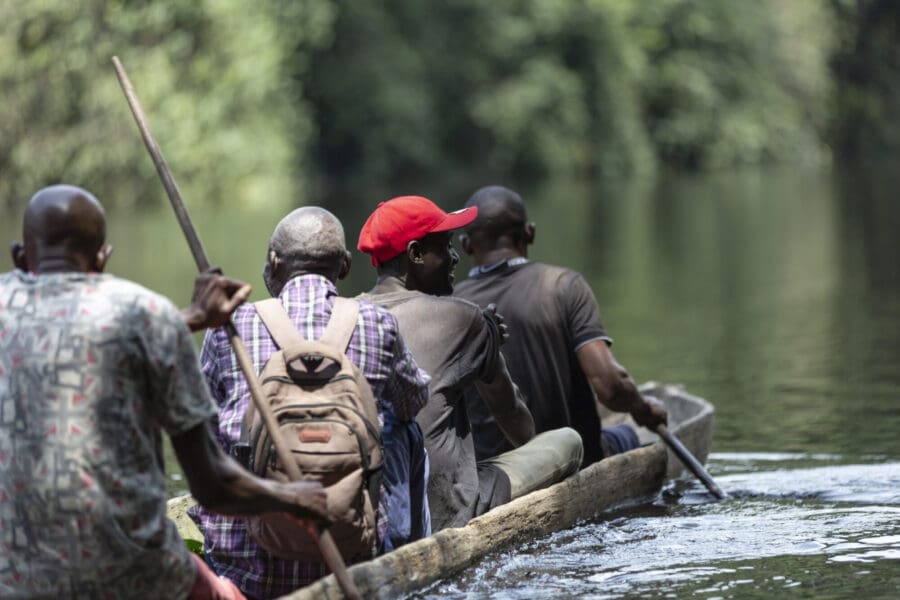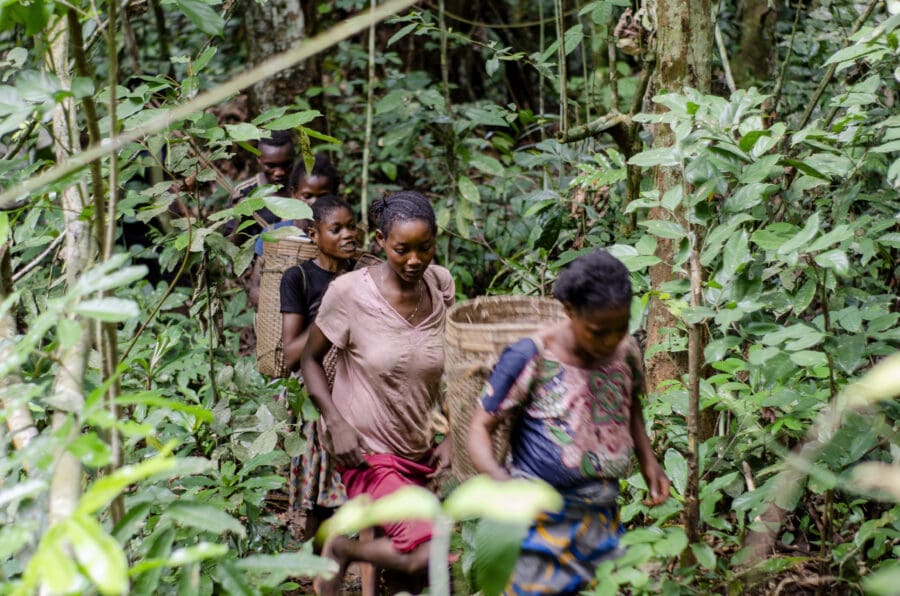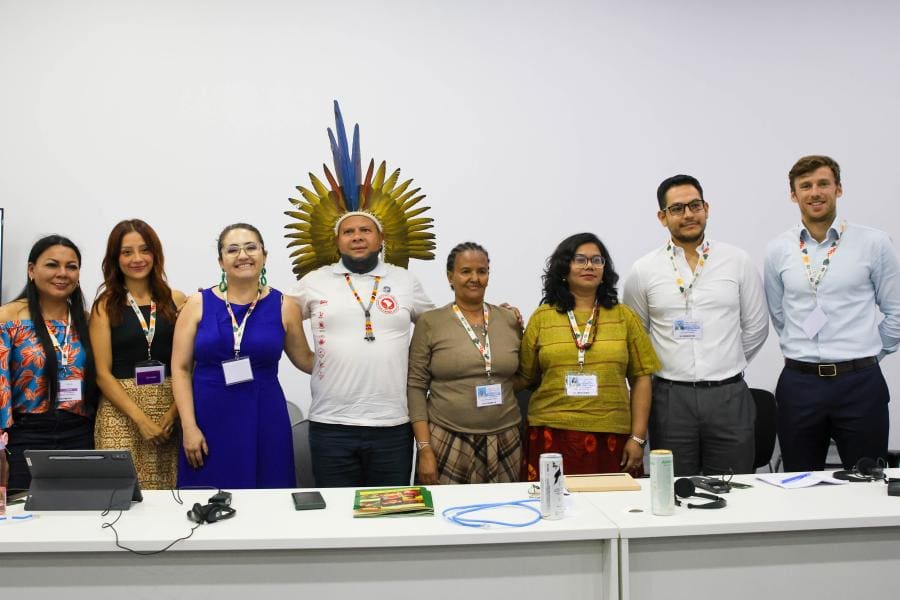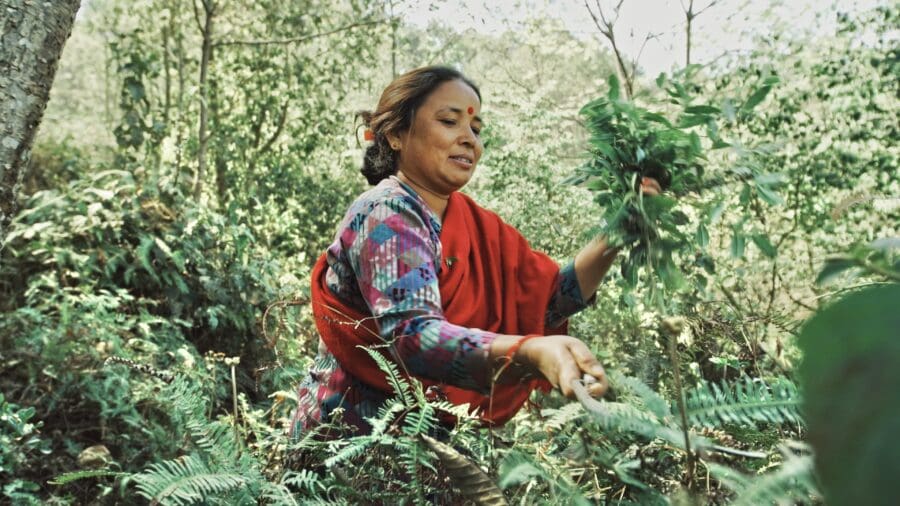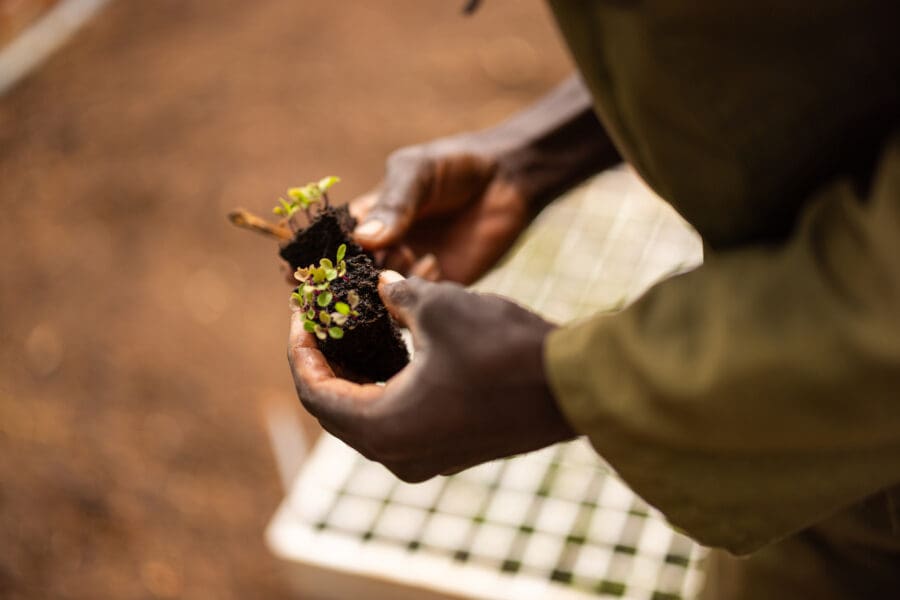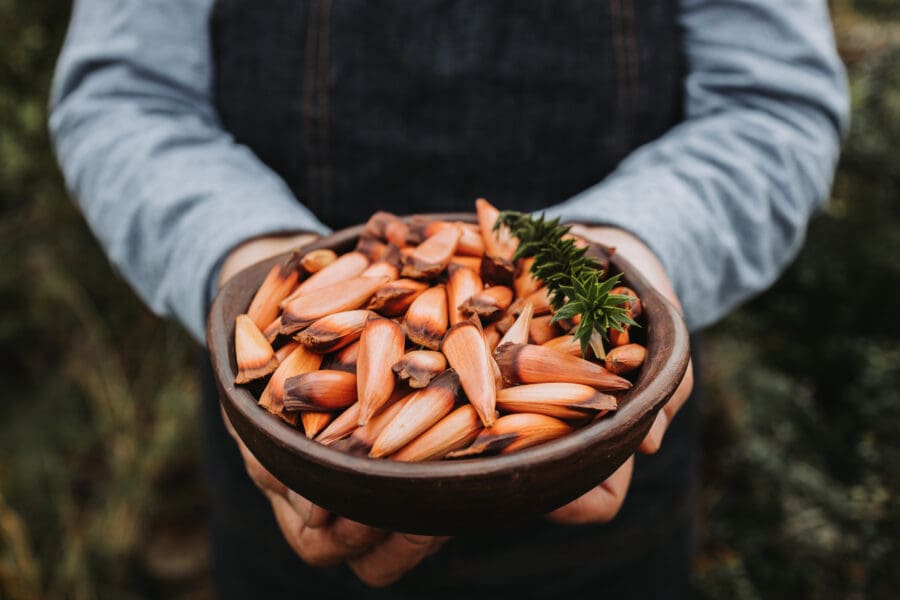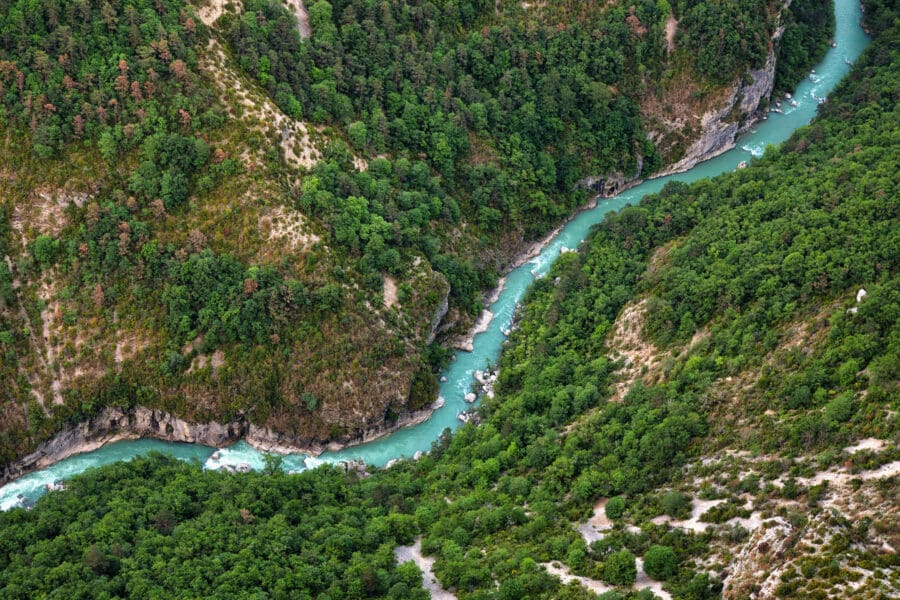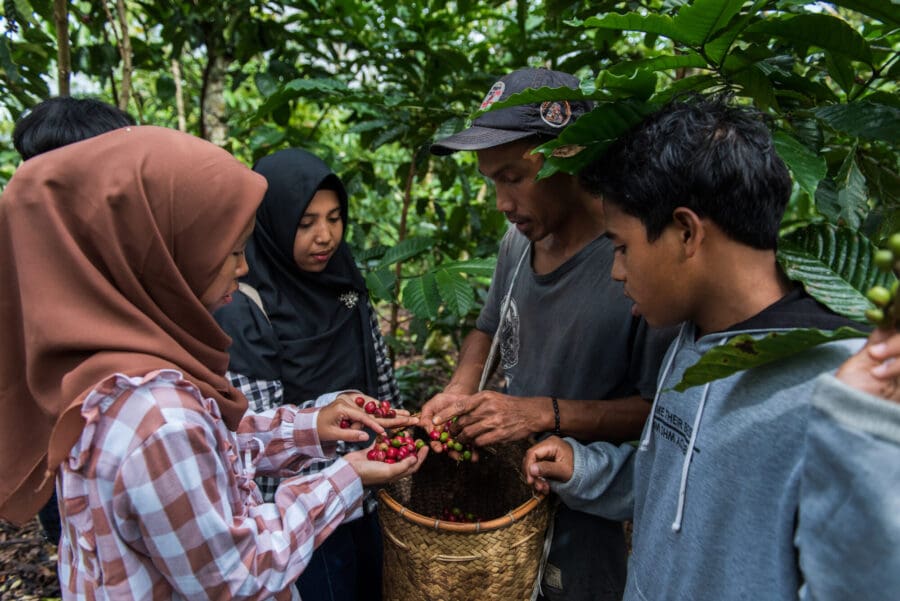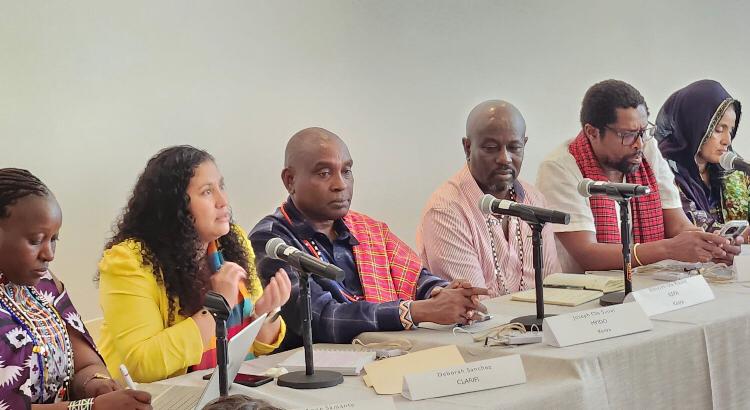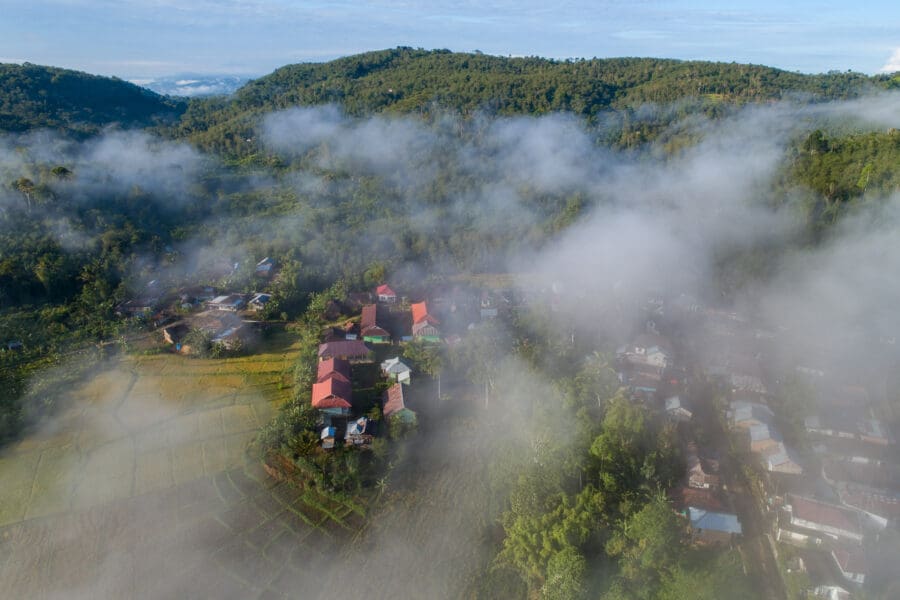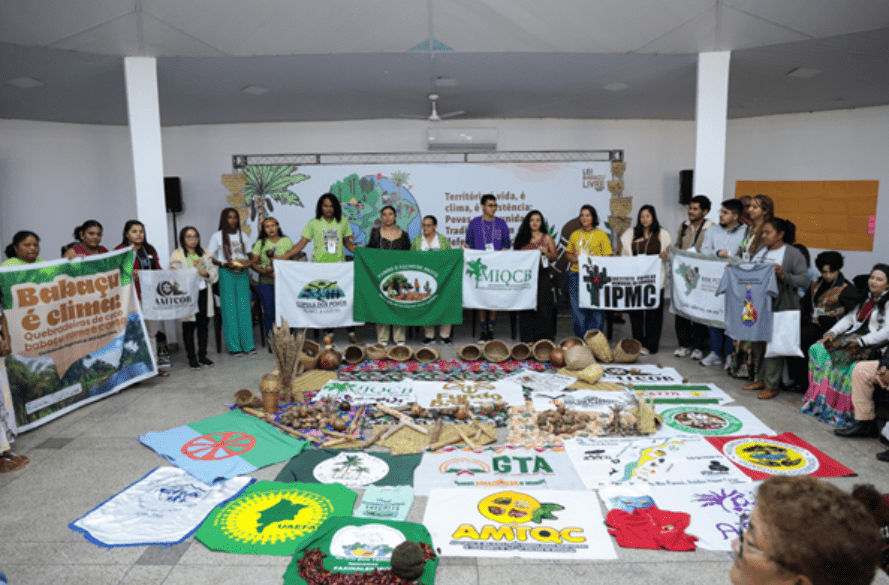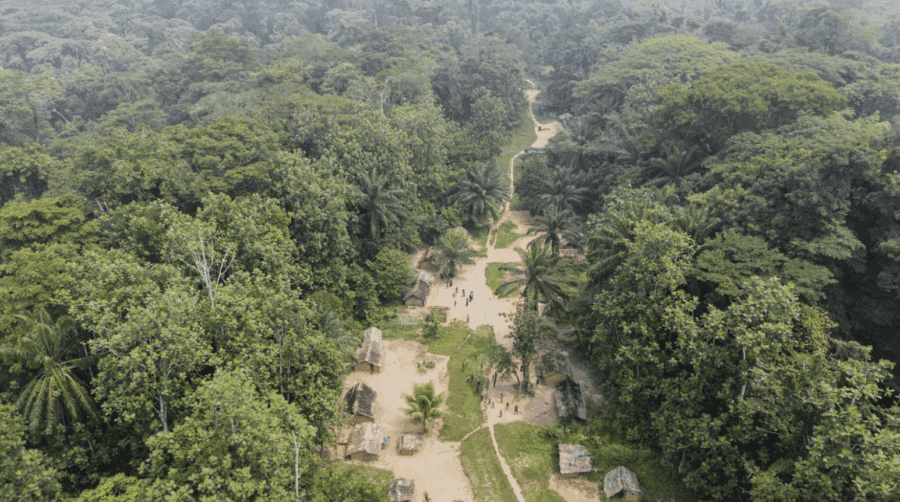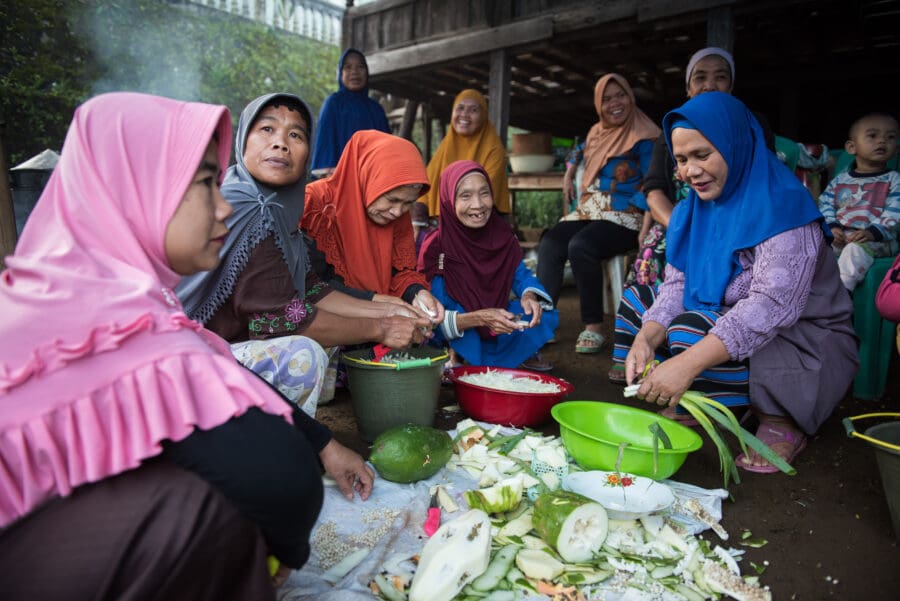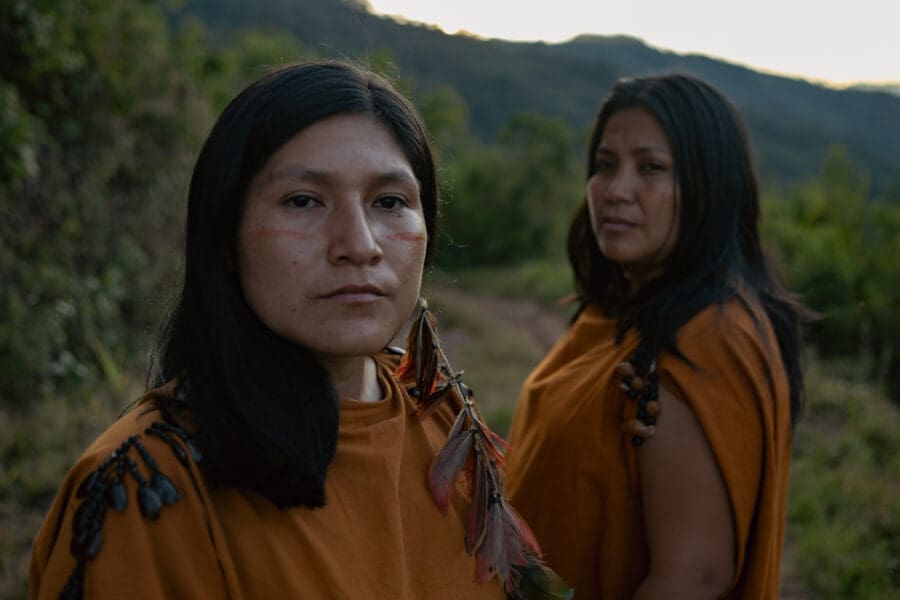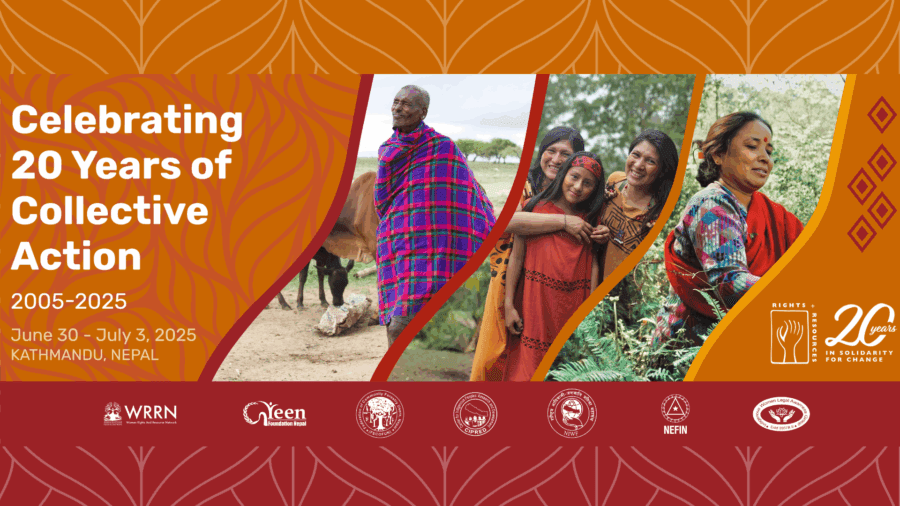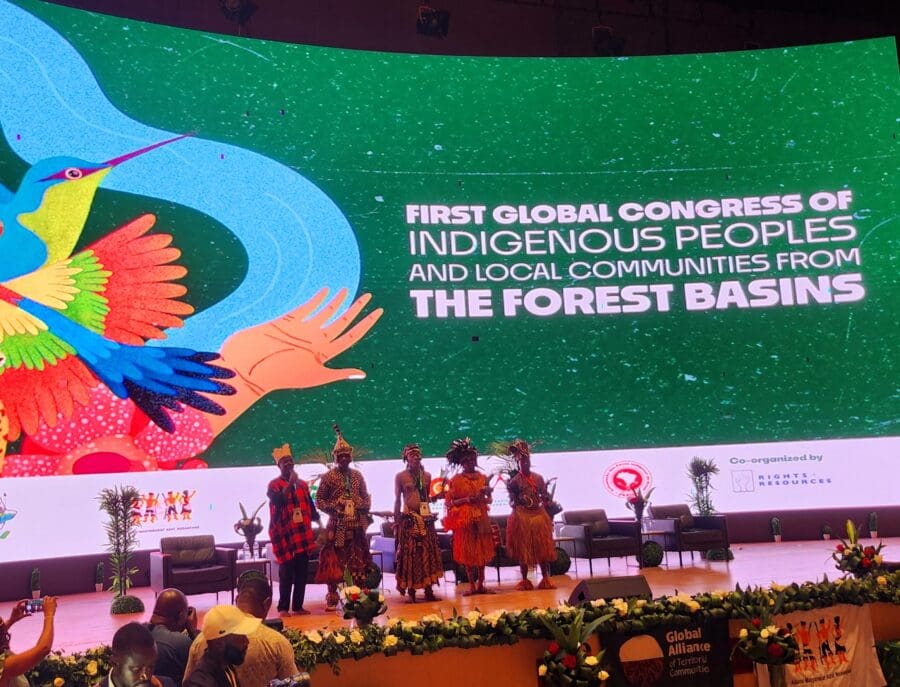2025 was a deeply challenging year for our sector, testing our coalition in unprecedented ways. But despite this, our coalition members claimed some major wins through their remarkable courage and resilience.
Local communities across Latin America, Africa, and Asia made key advances in increasing their effective representation in global climate negotiations and policies at the recently concluded 30th UN Climate Change Conference.
The president and legal representative of the Integral Forestry Association of Cruce a La Colorada (AFICC) in the Maya Biosphere Reserve, Guatemala, shares the vicissitude she had to face as a leader, mother, and head of household.
At the recently concluded COP30, the central role of tropical forests and the Indigenous, Afro-descendant, and local communities that protect them was firmly in the spotlight. Despite ongoing challenges, the climate summit delivered tangible, measurable gains for communities and local forest stewards, ranging from landmark land recognitions to new funding initiatives and international collaborations.
During COP30 in Belém, the governments of Brazil and Colombia, together with the Rights and Resources Initiative (RRI), officially announced the launch of the Acceleration Plan for Solutions for Afro-descendant Peoples (PAS Afrodescendiente) 2026–2030, the first regional initiative dedicated to accelerating the answers to the historical gaps in territorial recognition, environmental governance, and financing for Afro-descendant Peoples in Latin America and the Caribbean.
At COP30, RRI announced the next phase of its global coalition strategy, "From Rights to Livelihoods: Advancing Collective Economies for People and Planet," with the launch of a new Collective Livelihoods and Enterprise Network. The initiative represents a major step in linking land rights, sustainable livelihoods, and conservation through community-led economies.
Climate change negotiators meeting in Brazil for COP 30 will face intense pressure to agree on indicators to measure adaptation and a roadmap to quadruple the new collective quantified goal on climate finance.
This statement by the Women in Global South Alliance (WiGSA) extends its congratulations to governments and donors for their renewed commitment to supporting the tenure rights of Indigenous Peoples, Afro-descendant Peoples, and local communities, as announced at COP30 in Brazil on November 6, 2025, and calls on funders to address the global gender funding gap.
As the world moves toward COP30 in Belém, Brazil, countries are in the process of updating their Nationally Determined Contributions (NDCs)—the key national plans that define climate goals, strategies, and financing needs under the Paris Agreement. In this crucial context, RRI released a two-phase study in September and October 2025, analyzing current NDCs of 25 countries across Latin America, Africa, and Asia.
As global leaders prepare to gather in Belém, Brazil, this November for the 30th UN Climate Conference (COP30), the Rights and Resources Initiative (RRI) and its global partners are calling for the summit to serve as a turning point for Indigenous Peoples, Afro-descendant Peoples, and local communities who safeguard the world’s forests and biodiversity.
As the global community prepares for UNFCCC COP30, hosted for the first time in the Amazon region of Brazil, the Rights and Resources Initiative (RRI) and its coalition of over 200 partners, collaborators, and allies have been sending a clear and powerful message for months: Earth’s #DefendersLeadTheWay on climate action.
Novo relatório mostra progresso inconsistente em nível nacional em relação aos direitos de posse de terras para Povos Indígenas, Povos Afrodescendentes e comunidades locais
During Climate Week NYC 2025, RRI and partners amplified Indigenous, Afro-descendant, and local community voices—advancing rights-based climate action and equity ahead of COP30.
New report shows inconsistent domestic progress on tenure rights for Indigenous Peoples, Afro-descendant Peoples, and local communities
A new report by RRI, Forest Peoples Programme, and the ICCA Consortium assessing 30 high-biodiversity countries across Africa, Asia, and Latin America finds that while most countries have legal pathways to advance rights-based conservation, in practice, communities’ contributions to national conservation efforts continue to be inadequately recognized or supported.
RRI is seeking nominations for the Chair of the Board of Directors, who will guide its coalition of more than 200 partners, collaborators, and fellows in implementing its Fourth Strategic Program, which runs through 2027. We are looking for individuals committed to RRI's core issues: The land, resources, and collective rights of Indigenous Peoples, Afro-descendent Peoples, and local communities.
From July 8th to July 10th, Brasilia held an event called the Pre-COP of the Traditional Peoples and Communities of Brazil . This was a national preparatory meeting for COP30, the next UN climate change conference that will be held in Belém, Brazil, in November 2025.
Over 50 young leaders from Indigenous, Afro-descendant, and local communities across Asia, Africa, and Latin America will gather in Bali, Indonesia, for the first-ever Global Youth Forum.
In July 2025, the President of the Democratic Republic of Congo (DRC) signed into law the country’s first-ever land-use planning legislation, marking a historic step toward community-centered land governance and sustainable development in one of the world’s most biodiverse countries.
This new report highlights RRI's twenty years of impact on communities’ collective land and resource rights and outlines the path forward to secure their future worldwide.
Dalam perayaan ulang tahun ke-20 di Kathmandu, Rights and Resources Initiative (RRI) mengumumkan para pemenang Penghargaan Aksi Kolektif perdana. Penghargaan ini diberikan sebagai bentuk penghormatan kepada Masyarakat Adat, Masyarakat Keturunan Afrika, dan komunitas lokal dari Afrika, Asia, dan Amerika Latin atas kepemimpinan mereka dalam memperjuangkan hak kolektif atas tanah, hutan, dan sumber daya.
Durante a celebração de seu 20º aniversário em Katmandu, a Rights and Resources Initiative (RRI) anunciou os vencedores de seu primeiro Prêmio de Ação Coletiva, que reconhece povos indígenas, comunidades afrodescendentes e populações locais da África, Ásia e América Latina por sua liderança na defesa de seus direitos coletivos à terra, às florestas e aos recursos naturais.
At its 20th anniversary celebration in Kathmandu, the Rights and Resources Initiative (RRI) announced the winners of its inaugural Collective Action Awards. The awards honor Indigenous Peoples, Afro-descendant Peoples, and local communities from Africa, Asia, and Latin America for their leadership in defending their collective land, forest, and resource rights.
Hundreds of Indigenous and local community representatives from the world’s largest tropical forest basins held a historic convening on May 26–30, 2025, with government representatives, international development institutions, and donors to present their demands ahead of the next UN Climate Conference in Brazil (COP30).



